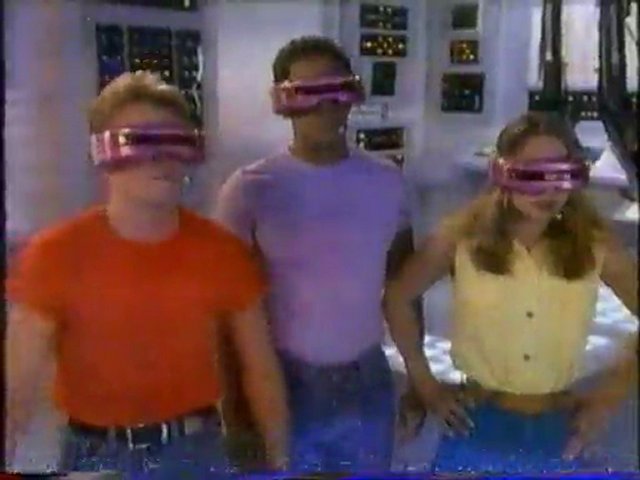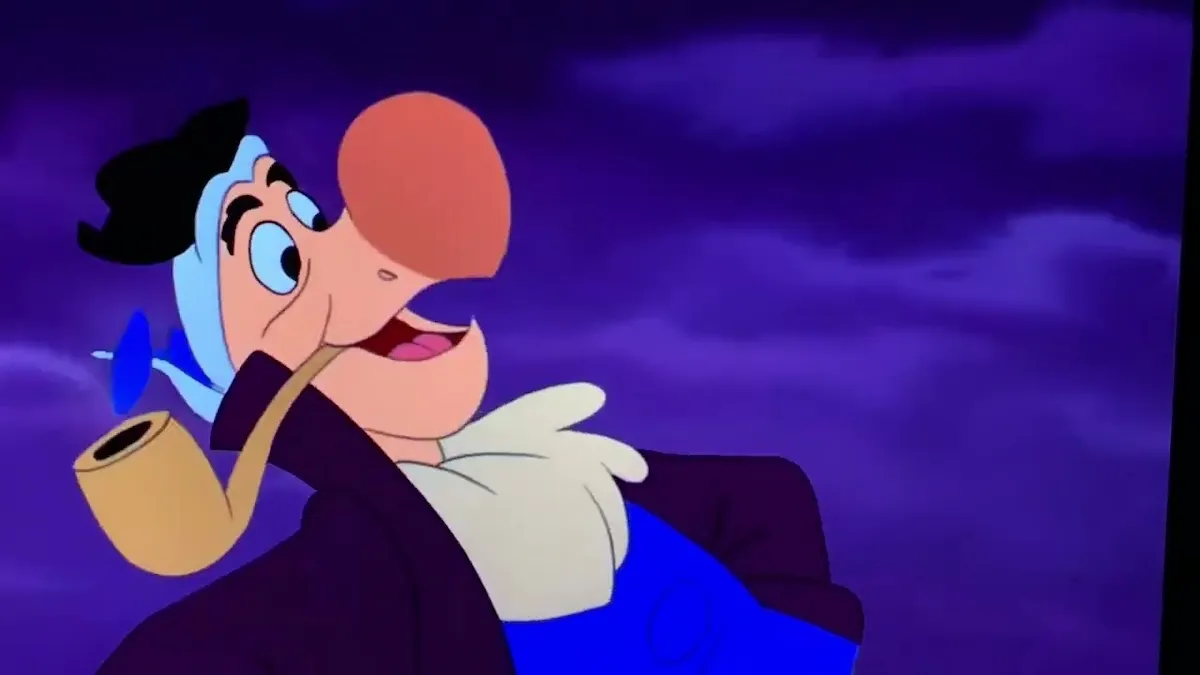I don’t remember much about VR Troopers, other than that I could probably find a good image for this post by searching for it, and that the show had a talking dog.
The effects of virtual reality simulations on the brain aren’t just of interest to video game developers. They’re also being studied by folks who study for a living: researchers in cognitive science. Lara Maister, Mel Slater, Maria V. Sanchez-Vives, and Manos Tsakiris’s paper was published in Trends in Cognitive Sciences this month, in which they reveal the intriguing results of some simple VR and optical illusion tricks to reduce the extent to which participants listened to their implicit racial biases. In other words, a few illusions, and they managed to make some people act instinctively less racist.
Now please bear with me as I describe some effective cognitive tricks that nevertheless sound kind of silly when you describe them. Maister, et al. hid white participants hands from sight, and stroked them in unison with a dark-colored rubber hand placed in a similar location visible to the participant, to trick the participant’s brain into believing that the dummy hand was its own, and then pricked the dummy hand with a needle and measured the participants’ biological response. In another test, the participants’ face was stroked by a cotton swab as they watched a video of someone of a different race having their face stroked in unison. And finally, the virtual reality demonstration:
Women underwent a full-body transformation in virtual reality. They wore wide-angle, high-resolution head-mounted VR displays and motion-capture suits for tracking their bodies in real-time, all to create an immersive experience. Each test subject could see her own hands in the virtual world, as well as a reflection of her avatar body, in pale, dark, or purple shades. White women who spent time in black bodies came out with a more positive IAT score. However, female participants who slipped into pale or purple skin didn’t score any higher after their VR experience.
IAT here refers to an Implicit Association Test, a social psychology method that detects how quickly subjects associate or disassociate one concept with another concept. Hesitation can indicate a choice that goes with a subject’s cognitive choice, but against the subject’s instinctive association. For example, studies using IATs have shown that people are more instinctually empathetic towards pictures of white people than of black people, or believe that black people feel less pain, and that white subjects tend to dehumanize black faces and associate them with words like “breed,” “creature,” or “mongrel.”
After undergoing these various cognitive tricks to associate their own bodies with those with dark-skin, Maister, et al. found that their study participants got more egalitarian scores on an IAT than they had before, tended to consider the bodies that they had come to associate with as more attractive and similar to their own, and thought the people they represented might have shared opinions with them. Folks who’d responded to having their fake hand pricked more strongly had a greater change in their scores, and the scores of women whose virtual avatars had been ones with white or purple skin didn’t change much at all.
But the lasting effect of these tricks, and exactly how they work, are still unknown to researchers: another scientific task for another scientific day. And the virtual reality trick, says Nick Yee, longtime studier of gamer behavior, might depend entirely on context, citing a study that showed taking a job interview in a black avatar led white participants to have greater negative racial bias afterward, and another that demonstrated that when men play female avatars, they tend to conform to female gender stereotypes in their play behavior.
Either way, instinctive bias is only one part of the equation of the brain and its relationship to prejudice, and it can be overcome without fancy cognitive tricks. Not that it wouldn’t be nice to have some kind of magic wand we could wave over, say, congress, for example.
(via Popular Science)
Are you following The Mary Sue on Twitter, Facebook, Tumblr, Pinterest, & Google +?








